"The knowledge of the reality, causes and implications of anthropogenic climate change creates a moral imperative to act, but this imperative is diluted at every level by collective action problems that appear to be beyond our existing ability to resolve. This challenge is compounded by collectively mischaracterising the climate problem as an exclusively environmental issue, rather than a broader systemic threat to the global financial system, public health and national security."
Get Started for FREE
Sign up with Facebook Sign up with X
I don't have a Facebook or a X account

| Tags |
|---|
 Your new post is loading... Your new post is loading...
 Your new post is loading... Your new post is loading...
Within the degrowth and décroissance movement, Illich is an important source for inspiration. Conviviality has especially significance to the discussion on the role of technology in a society beyond growth. The reception of Illich within degrowth often falls in line with a rejection of globalized capitalism, globalized chains of production and global business – the signifiers of productivism, counterproductivity and the heteronomic order of economic growth fetishism.
Willy De Backer's insight:
Great article on how trade policies need radical change to prevent more anti-globalisation populism.
Willy De Backer's insight:
How can the global concept of planetary boundaries be translated into national or regional (EU?) policy targets - must-read academic article
The real incomes of about two-thirds of households in 25 advanced economies were flat or fell between 2005 and 2014. Without action, this phenomenon could have corrosive economic and social consequences.
Willy De Backer's insight:
Perfect storm of postgrowth economy, rising inequalities, climate chaos, energy descent explains Trump, Brexit and rise of terror and new modern fascism. Big question: can we still tackle this or have we passed the point of no return?
In just two decades, the total value of the energy being produced via fossil fuel extraction has plummeted by more than half. Now $3 trillion of debt is at risk.
Willy De Backer's insight:
Another brilliant must-read analysis by Nafeez Ahmed of the financial collapse of the global oil industry and how it will bring down the capitalist economy.

Stephane Bilodeau's curator insight,
April 24, 2016 11:14 AM
"In February, the financial services firm Deloitte predicted that over 35 percent of independent oil companies worldwide are likely to declare bankruptcy, potentially followed by a further 30 percent next year—a total of 65 percent of oil firms around the world. Since early last year, already 50 North American oil and gas producers have filed bankruptcy.
The cause of the crisis is the dramatic drop in oil prices—down by two-thirds since 2014—which are so low that oil companies are finding it difficult to generate enough revenue to cover the high costs of production, while also repaying their loans. Oil and gas companies most at risk are those with the largest debt burden. And that burden is huge—as much as $2.5 trillion, according to The Economist. The real figure is probably higher. (...) the total value of the energy being produced via fossil fuel extraction has plummeted by more than half. And it continues to decline. This is because the more fossil fuel resources that we exploit, the more we have used up those resources that are easiest and cheapest to extract. This compels the industry to rely increasingly on resources that are more difficult and expensive to get out of the ground, and bring to market."
Politicians, journalists, lobbyists, CEOs, and corporate bureaucrats rarely talk to anyone except each other. They constitute a distinct intellectual universe. Within this universe, economic policies are designed primarily for political marketability; economic science exists largely to provide impressive diagrams and equations to sell them with. Phrases designed in think tanks and focus groups (“free markets,” “wealth creators,” “personal responsibility,” “shared sacrifice”) are repeated like incantations until it all seems like such unthinking common sense that no one even asks what the resulting picture has to do with social reality. True, the bubble logic can be maintained only by a certain studied ignorance of how the economy really works.
it is naïve to think that we can extract the merits of the sharing economy without investing in the infrastructure and social welfare state that undergirds that economy.
The world is entering a period of stagnation, the new mediocre. The end of growth and fragile, volatile economic conditions are now the sometimes silent background to all social and political debates. For individuals, this is about the destruction of human hopes and dreams.
Willy De Backer's insight:
Brilliant extract of the latest book of former banker Satyajit Das; The Age of Stagnation. 'Authorities have been increasingly forced to resort to untested policies including QE forever and negative interest rates. It was an attempt to buy time, to let economies achieve a self-sustaining recovery, as they had done before. Unfortunately the policies have not succeeded. The expensively purchased time has been wasted. The necessary changes have not been made.'
Digital technologies are having dramatic impacts on consumers, businesses, and markets. These developments have reignited the debate over the definition and measurement of common economic statistics such as GDP. This column examines the measurement challenges posed by digital innovation on the economic landscape. It shows how existing approaches are unable to capture certain elements of the consumer surplus created by digital innovation. It further demonstrates how they can misrepresent market-level shifts, leading to false assessments of production and growth.
Willy De Backer's insight:
Interesting article on how the digitalisation of our economy impacts GDP measurement and leads to wrong policies.
A key finding of our research is that climate change poses a fundamental challenge to business as usual. While corporations frame climate change through the optimistic prism of innovation, technology and “green” products and services, the unpleasant reality is that our existing economic system fundamentally undermines a habitable climate.
Willy De Backer's insight:
Brilliant must-read analysis on the climatechaos, capitalism and the future of business
cette révolte des masses qui conduit à une forme d’autoritarisme politique et à une dictature populiste résulte des « politiques de non-reconnaissance » conduites un peu partout en Europe, selon la doxa néolibérale. Tous les fascismes européens ont commencé de la même façon : transformation d’un manque de dignité des masses populaires en fait politique pour retrouver la fierté nationale. On peut craindre que le fascisme qui a déjà pris une forme d’exercice de pouvoir et une méthode de gouvernance renaisse en Pologne.
Willy De Backer's insight:
Excellent article in Le Monde on the fascist revolution in Poland and the importance for EU democracy
A successful transition will depend on a diverse collection of efforts, including urging negative population growth; supporting sustainable consumption and degrowth; promoting the commons paradigm; working with religion to foster an ethic for an equitable and sustainable planet; furthering justice; improving the sciences; promoting agroecology; facilitating local markets; encouraging progressive forms of corporate ownership, governance, and practice; and warning of limits and the possibilities of tipping points. We will need all of these efforts and more to shift to a socially just and environmentally sustainable world. We will even need the insights of economists, but with a diversity of forms of economic thinking. We will need markets, but we will have to be far more aggressive in telling the “invisible hand” where to go. Hopefully, exposing the interrelationships between economism and the Econocene will help us see the depth and breadth of the problem and the role each of us can play in a collective solution.
Willy De Backer's insight:
Brilliant must-read article by Richard Norgaard on the role of 'economism' and the need for a radical transformation of our economies.
The climate circus would be farcical, if the fate of billions were not at stake
Willy De Backer's insight:
Read this Guardian article to understand the non-importance of COP21 |
The idea of AWE is both simple and promising. The current generation of wind turbines work relatively well, but it is also a technology that's rapidly reaching its technical limits, given by the weight and the cost of the tower that supports the rotor. So, why can't we just get rid of the tower and have the rotor fly in the air?
Willy De Backer's insight:
Interesting must-read article by Ugo Bardi on airborne wind energy: chances and problems.
shorter work weeks are not just good for your well-being, they are great for sustainability and future-proofing the economy too.
Willy De Backer's insight:
Must-read article on the need for working time reduction
For progressives the narrative on the digital economy should be clear: they must embrace digital technology to boost growth, increase productivity and employment and change labour law and social protection rules where necessary. But taking a look across the European political landscape shows that in most countries the centre left mostly offers rhetoric, not reality, and often not even that. In particular, on the issues of labour law and social protection, one of the natural habitats of the left, there are hardly any answers on the table as to how some of the most dynamic and innovative but at the same time disruptive businesses can be integrated in Europe’s economic and social structure.
Willy De Backer's insight:
Good article on why and how the Left and trade unions should lead the debate on digitalisation & the future of work and social protection
The American left and progressives have no future if they cannot imagine a new language that moves beyond the dead-end politics of the two-party system and explores how to build a broad-based social movement to challenge it. One fruitful beginning would be to confront the fact that our society is burdened not only by the violence of neoliberalism but also by the myth that capitalism and democracy are the same thing. Capitalism cannot rectify wage stagnation among large segments of the population, the growing destruction of the ecosystem, the defunding of public and higher education, the decline in life expectancy among the poor and middle classes, police violence against Black youth, the rise of the punishing state, the role of money in corrupting politics, and the widening gap in income and wealth between the very rich and everyone else.
Willy De Backer's insight:
Brilliant analysis of the current anti-politics populism and the need for a new radical left
Every invocation of Lord Keynes is an admission of failure. To propose Keynesian solutions to the crises of the 21st century is to ignore three obvious problems. It is hard to mobilise people around old ideas; the flaws exposed in the 70s have not gone away; and, most importantly, they have nothing to say about our gravest predicament: the environmental crisis. Keynesianism works by stimulating consumer demand to promote economic growth. Consumer demand and economic growth are the motors of environmental destruction.
Willy De Backer's insight:
Brilliant must-read analysis of neo-liberalism and why the left's neo-Keynesianism is not the answer
De 'nieuwe' derde optie die bestaat voor Europa, is kort samen te vatten: eenheid in verscheidenheid. In een tijd waarin goederen en diensten steeds meer op maat kunnen worden gemaakt, past geen Europese Unie die pluriformiteit en diversiteit tussen lidstaten als een probleem ziet, en begrotingsbeleid en fiscaal beleid steeds meer wil uniformeren en centraliseren.
Willy De Backer's insight:
One of the best analyses I have read in years about the existential crisis of the European union. Less centralisation, more integration through a new way of working together.
From
medium
'intelligentsias manufacture unrealities in eras of decline because their position at the top of the heap depends on doing so. If they are to validate decline as real, then they undermine the very order in which they are at the top. Who knows what might happen then? People might begin to blame them for having been agents of decline in the first place. Thus, their first and greatest incentive is to push the myth that there is no decline. Whatever the intelligentsia in an age of decline does, it cannot validate, prove, even often discuss, the possibility of decline as real, actual, happening, true.'
Willy De Backer's insight:
excellent analysis, very applicable to what is happening at EU level these days
In embracing the monetary valuation of nature as a strategy for mobilizing support for environmental conservation, environmentalists are resigning themselves to a political status quo that can only comprehend value in terms of money and markets. By viewing ecosystems and their services through a pecuniary lens, monetization profoundly changes our relationship with nature, and, if taken to the point of commodification, can subject the fragility of nature’s balance to the destructive logic and volatility of markets.
Willy De Backer's insight:
Very good article on the dangers of putting a price on ecoservices.
Liberal immigration policies can be enforced only by winning public support, not in spite of public opposition. Winning such support is not a chimera, there is no iron law that the public must be irrevocably hostile to immigration. Large sections of the public have become hostile because they have come to associate immigration with unacceptable change. That is why, paradoxically, the immigration debate cannot be won simply by debating immigration, nor the migration crisis solved merely by enacting migration policies. Anxieties about immigration are an expression of a wider sense of political voicelessness and disengagement. Until that underlying political problem is tackled, the arrival of migrants on Europe’s shores will continue to be seen as a crisis.
Willy De Backer's insight:
Without any doubt, one of the best articles recently written on the refugee crisis in Europe.
we have wasted the past seven years propping up a bankrupt economic model. Before things get any worse, we need to replace it with one in which the financial sector is made less complex and more patient, investment in the real economy is encouraged by fiscal and technological incentives, and measures are brought in to reduce inequality so that demand can be maintained without creating more debts.
Willy De Backer's insight:
Not China but debt addiction of the West & misguided austerity policies are cause of the new coming Depression.
'Uber is an ideological campaign, a neoliberal project whose real products are deregulation and the dismantling of the social contract.'
Willy De Backer's insight:
Good article explaining why Uber does not have anything to do with the #sharingeconomy & is not the #futureofwork.
Either these commodities are about the turn the corner as renewed strength in the United States--the biggest buyer of commodities next to China--revives industrial metal and crude oil demand--or the Federal Reserve is misreading the tea leaves and crashing commodity prices signal a world and U.S. economy in distress.
Willy De Backer's insight:
Good article on the FED's interest raise and the real economy implications |




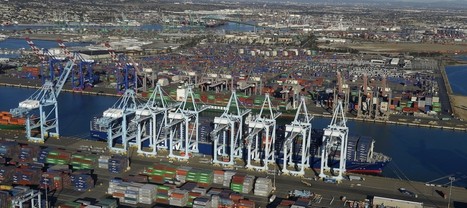
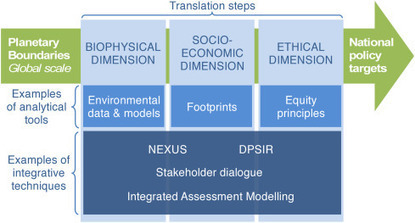
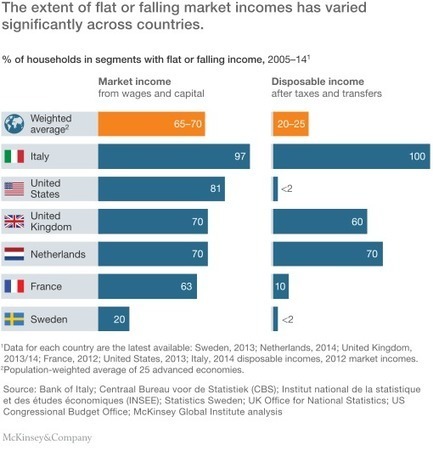







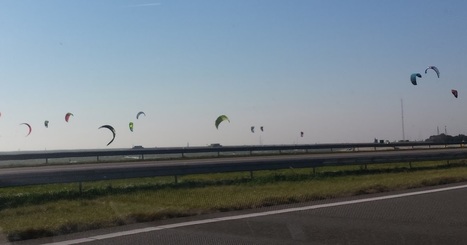

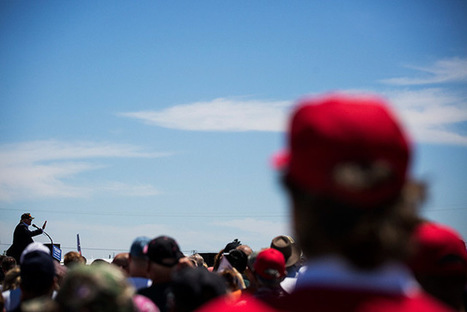

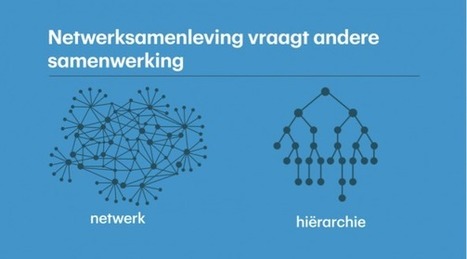


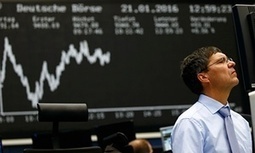
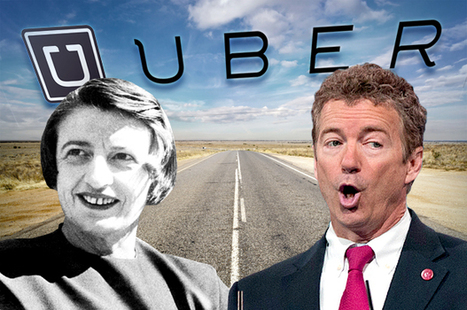






Interesting new report focusing on the need to re-frame climate policy.